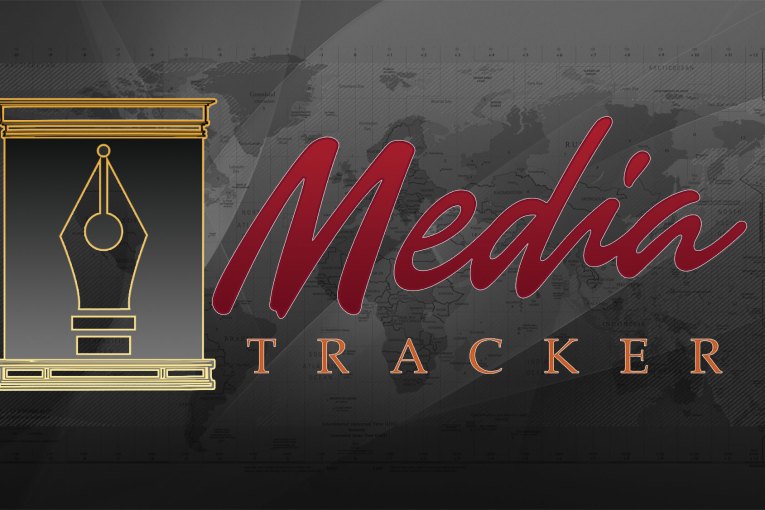
Media Tracker lists the challenges and achievements of the journalists and media organisations worldwide. Here’s a list of journalism at risk stories in the recent month. We would like to thank international media protection organisation and news outlets for their content.
- In a violation of counterterrorism laws of the state, a netizen, Meng Juntao, in Xinjiang was placed in administrative detention for 15 days, starting February 18, 2017, on charges of using a super VPN (virtual private network) to listen to Radio Free Asia (RFA) and other supposedly “anti-government” websites on his cell phone. Police allegedly told the RFA reporter that, “the media have no right to ask questions.” The international Federation of journalists (IFJ) strongly condemned the inappropriate laws that run contrary to the right of press freedom and that to access information enshrined in the constitution of China. (IFJ)
- At least 10 journalists have been arrested while covering protests against the Dakota Access Pipeline at Standing Rock Indian Reservation in the United States. Two of those journalists, Christopher Schiano and Nicholas Georgiades, go on trial this week. Arresting reporters can have a damaging effect on Press Freedom. CPJ called on the Morton County State’s Attorney’s Office to drop charges against the journalists reporting on the protests. (CPJ)
- Ahmad Bashir Attayee, a news reporter for Ariana News TV, was assaulted by a police officer while he was covering Nowroz (Persian New Year) celebrations in Balkh province, Afghanistan, on March 22, 2017. Cameraman Ahmad Waled Sediqi was also beaten for recording the assault on the reporter and his camera was broken. The International Federation of Journalists (IFJ) and the Afghan Independent Journalist Association (AIJA) protested the assault. (IFJ)
- Two Brazilian journalists – Record TV reporter Leandro Stoliar and cameraman Gilzon Souza de Oliveira were deported last month while investigating a case of corruption involving the Brazilian conglomerate Odebrecht and state agencies in Venezuela. They were arrested by the Venezuelan government’s intelligence and counter-espionage agency, held for ten hours and subjected to several heavy-handed interrogation sessions; called “state terrorists” and were threatened with being imprisoned “for ever.”
- More than 20 journalists and media workers of at least nine different nationalities have been denied entry in Venezuela since last August. The official grounds have been violation of immigration regulations and other bureaucratic pretexts. Reporter Sans Frontier, RSF, points out that back in December 2015, foreign reporters who wanted to cover that month’s parliamentary elections had to sign a good conduct pledge to avoid the withdrawal of their accreditation. Venezuela is ranked 139th out of 180 countries in RSF’s 2016 World Press Freedom Index.
- After 18 years in an Uzbekistan prison for his journalism, Muhammad Bekjanov is finally free. Along with his colleague Yusuf Ruzimuradov, he was the joint-longest imprisoned journalist in the world– and Ruzimuradov remains in jail. Bekjanov suffered torture and abuse as a result of his critical reporting, and his release was long overdue. Now, Uzbekistan must release all the journalists who remain imprisoned within its jails. (CPJ)



